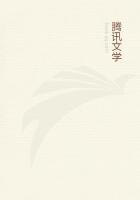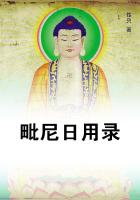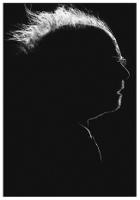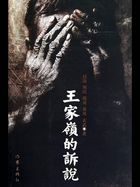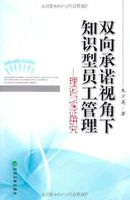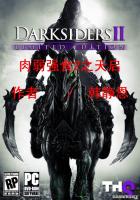FAR back in childhood, among its earliest memories, Henry Adams could recall his first visit to Harvard College. He must have been nine years old when on one of the singularly gloomy winter afternoons which beguiled Cambridgeport, his mother drove him out to visit his aunt, Mrs.
Everett. Edward Everett was then President of the college and lived in the old President's House on Harvard Square. The boy remembered the drawing-room, on the left of the hall door, in which Mrs. Everett received them. He remembered a marble greyhound in the corner. The house had an air of colonial self-respect that impressed even a nine-year-old child.
When Adams closed his interview with President Eliot, he asked the Bursar about his aunt's old drawing-room, for the house had been turned to base uses. The room and the deserted kitchen adjacent to it were to let. He took them. Above him, his brother Brooks, then a law student, had rooms, with a private staircase. Opposite was J. R. Dennett, a young instructor almost as literary as Adams himself, and more rebellious to conventions.
Inquiry revealed a boarding-table, somewhere in the neighborhood, also supposed to be superior in its class. Chauncey Wright, Francis Wharton, Dennett, John Fiske, or their equivalents in learning and lecture, were seen there, among three or four law students like Brooks Adams. With these primitive arrangements, all of them had to be satisfied. The standard was below that of Washington, but it was, for the moment, the best.
For the next nine months the Assistant Professor had no time to waste on comforts or amusements. He exhausted all his strength in trying to keep one day ahead of his duties. Often the stint ran on, till night and sleep ran short. He could not stop to think whether he were doing the work rightly.
He could not get it done to please him, rightly or wrongly, for he never could satisfy himself what to do.
The fault he had found with Harvard College as an undergraduate must have been more or less just, for the college was making a great effort to meet these self-criticisms, and had elected President Eliot in 1869 to carry out its reforms. Professor Gurney was one of the leading reformers, and had tried his hand on his own department of History. The two full Professors of History -- Torrey and Gurney, charming men both -- could not cover the ground. Between Gurney's classical courses and Torrey's modern ones, lay a gap of a thousand years, which Adams was expected to fill. The students had already elected courses numbered 1, 2, and 3, without knowing what was to be taught or who was to teach. If their new professor had asked what idea was in their minds, they must have replied that nothing at all was in their minds, since their professor had nothing in his, and down to the moment he took his chair and looked his scholars in the face, he had given, as far as he could remember, an hour, more or less, to the Middle Ages.
Not that his ignorance troubled him! He knew enough to be ignorant.
His course had led him through oceans of ignorance; he had tumbled from one ocean into another till he had learned to swim; but even to him education was a serious thing. A parent gives life, but as parent, gives no more.
A murderer takes life, but his deed stops there. A teacher affects eternity; he can never tell where his influence stops. A teacher is expected to teach truth, and may perhaps flatter himself that he does so, if he stops with the alphabet or the multiplication table, as a mother teaches truth by making her child eat with a spoon; but morals are quite another truth and philosophy is more complex still. A teacher must either treat history as a catalogue, a record, a romance, or as an evolution; and whether he affirms or denies evolution, he falls into all the burning faggots of the pit.
He makes of his scholars either priests or atheists, plutocrats or socialists, judges or anarchists, almost in spite of himself. In essence incoherent and immoral, history had either to be taught as such -- or falsified.
Adams wanted to do neither. He had no theory of evolution to teach, and could not make the facts fit one. He had no fancy for telling agreeable tales to amuse sluggish-minded boys, in order to publish them afterwards as lectures. He could still less compel his students to learn the Anglo-Saxon Chronicle and the Venerable Bede by heart. He saw no relation whatever between his students and the Middle Ages unless it were the Church, and there the ground was particularly dangerous. He knew better than though he were a professional historian that the man who should solve the riddle of the Middle Ages and bring them into the line of evolution from past to present, would be a greater man than Lamarck or Linnæus; but history had nowhere broken down so pitiably, or avowed itself so hopelessly bankrupt, as there. Since Gibbon, the spectacle was almost a scandal. History had lost even the sense of shame. It was a hundred years behind the experimental sciences. For all serious purpose, it was less instructive than Walter Scott and Alexandre Dumas.
All this was without offence to Sir Henry Maine, Tyler, McLennan, Buckle, Auguste Comte, and the various philosophers who, from time to time, stirred the scandal, and made it more scandalous. No doubt, a teacher might make some use of these writers or their theories; but Adams could fit them into no theory of his own. The college expected him to pass at least half his time teaching the boys a few elementary dates and relations, that they might not be a disgrace to the university. This was formal; and he could frankly tell the boys that, provided they passed their examinations, they might get their facts where they liked, and use the teacher only for questions.
The only privilege a student had that was worth his claiming, was that of talking to the professor, and the professor was bound to encourage it.

